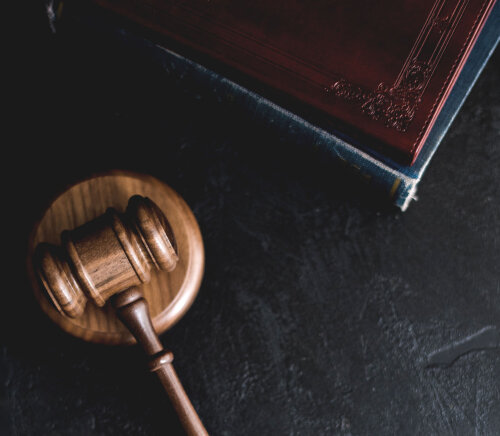Best Renewable & Alternative Energy Lawyers in Kloof
Share your needs with us, get contacted by law firms.
Free. Takes 2 min.
List of the best lawyers in Kloof, South Africa
About Renewable & Alternative Energy Law in Kloof, South Africa
Renewable and alternative energy law refers to the legal regulations and frameworks that govern the development, use, and management of energy resources such as solar, wind, hydro, and biomass. In Kloof, a suburb within the eThekwini Municipality of KwaZulu-Natal, the growing demand for sustainable energy solutions is prompting more residents and businesses to explore renewable options. South Africa is moving toward cleaner energy sources as part of its commitment to reduce greenhouse gas emissions and address electricity shortages. Legal guidance can help individuals and businesses navigate licensing, regulatory approval, and compliance requirements associated with renewable and alternative energy projects in Kloof.
Why You May Need a Lawyer
Dealing with renewable and alternative energy matters involves complex legalities. Here are common situations in which individuals or businesses in Kloof may require a lawyer:
- Permitting and Approvals: Assisting with applications for permits or licenses required for installing solar panels, wind turbines, or other systems.
- Land Use and Zoning: Ensuring compliance with property laws, land use regulations, and zoning ordinances related to renewable energy infrastructure.
- Contract Negotiation: Drafting and negotiating Power Purchase Agreements (PPAs) or contracts with suppliers, contractors, or utility companies.
- Dispute Resolution: Handling disputes with homeowners associations, neighbors, municipalities, or utility providers.
- Incentives and Government Programs: Advising on eligibility and application for governmental incentives, rebates, or schemes supporting renewable energy adoption.
- Environmental Compliance: Ensuring projects meet environmental standards and conducting required environmental impact assessments.
Local Laws Overview
Renewable and alternative energy projects in Kloof must comply with both national and municipal legislation. Key legal considerations include:
- National Energy Act: Sets out the regulatory framework for the provision and use of energy in South Africa.
- Electricity Regulation Act: Governs electricity generation, distribution, and trading, mandating compliance for all new energy facilities.
- Environmental Laws: The National Environmental Management Act requires environmental authorisations for projects that may significantly affect the environment.
- eThekwini Municipal Bylaws: The municipality regulates the installation of solar panels, batteries, and other energy systems, including requirements for building plan approvals and safety standards.
- Grid Connection Rules: Eskom and eThekwini Electricity have specific requirements and procedures for connecting private energy systems to the grid, such as registration and technical specifications.
- Building and Safety Codes: All installations must comply with the National Building Regulations to ensure safety and structural integrity.
Frequently Asked Questions
What types of renewable energy are most common in Kloof?
Solar power is the most popular option due to Kloof’s favorable climate, but some homes and businesses also consider small-scale wind and hydro solutions.
Do I need permission to install solar panels on my home?
Yes. Residents must obtain municipal approval for most rooftop solar installations. This often requires submitting building plans and complying with safety regulations.
Can I sell excess electricity back to the grid?
Yes, but you must register your system with your local municipality or Eskom and meet their technical and legal requirements for grid-tied systems.
Are there tax incentives or rebates for installing renewable energy systems?
There are limited incentives at the national level, mainly for commercial projects. Residential customers should check with eThekwini Municipality for any local initiatives.
Do renewable energy projects require environmental approval?
Significant projects may require an environmental impact assessment in line with national legislation, particularly if they exceed certain capacity thresholds or impact sensitive areas.
What happens if my renewable energy system causes a dispute with my neighbor?
Disputes can arise over property boundaries, sunlight rights, or noise. A lawyer can help mediate or represent you in resolving these issues according to South African law.
Are there any restrictions on using batteries or energy storage solutions?
Yes. Safety codes and fire regulations apply, and in some cases, approval from your local municipality is needed before installing large battery systems.
What contracts should I review when installing a renewable energy system?
You may need to sign agreements with installers, equipment suppliers, or utility companies. A lawyer can review and negotiate these contracts to protect your interests.
Can I form a community or neighborhood renewable energy project?
Yes, but it involves additional legal steps, from forming a legal entity to securing necessary licenses and negotiating with utilities. Legal advice is essential in these cases.
How can I ensure my renewable energy provider is compliant and reputable?
Check that providers are registered, have a good track record, and comply with all relevant technical and safety standards. Legal counsel can assist with due diligence.
Additional Resources
If you are seeking further information or assistance, consider these resources and organizations in South Africa:
- Department of Mineral Resources and Energy - Policy and regulations on renewable energy
- National Energy Regulator of South Africa (NERSA) - Licensing and regulatory authority
- eThekwini Municipality - Local bylaws, permits, and application procedures
- South African Photovoltaic Industry Association (SAPVIA) - Industry standards and guidance
- Green Building Council South Africa - Advice on sustainable construction and energy efficiency
- Sustainable Energy Africa - Research and advocacy for sustainable urban energy solutions
Next Steps
If you are considering a renewable or alternative energy project in Kloof, or if you are facing legal challenges related to sustainable energy, it is important to seek qualified legal advice. Here are suggested next steps:
- Gather relevant documents, including property deeds, contracts, and correspondence with service providers or authorities.
- Make note of any communication with the municipality, Eskom, or your homeowners association.
- Contact a lawyer experienced in renewable and alternative energy law in KwaZulu-Natal. Prepare a list of questions or issues for discussion.
- Take advantage of available resources and consult local municipal offices for current regulations and incentive programs.
- Keep up to date with developments in energy law and best practices for safe, compliant installations.
Taking these steps early can help ensure your renewable energy project is legally sound and set up for long-term success.
Lawzana helps you find the best lawyers and law firms in Kloof through a curated and pre-screened list of qualified legal professionals. Our platform offers rankings and detailed profiles of attorneys and law firms, allowing you to compare based on practice areas, including Renewable & Alternative Energy, experience, and client feedback.
Each profile includes a description of the firm's areas of practice, client reviews, team members and partners, year of establishment, spoken languages, office locations, contact information, social media presence, and any published articles or resources. Most firms on our platform speak English and are experienced in both local and international legal matters.
Get a quote from top-rated law firms in Kloof, South Africa — quickly, securely, and without unnecessary hassle.
Disclaimer:
The information provided on this page is for general informational purposes only and does not constitute legal advice. While we strive to ensure the accuracy and relevance of the content, legal information may change over time, and interpretations of the law can vary. You should always consult with a qualified legal professional for advice specific to your situation.
We disclaim all liability for actions taken or not taken based on the content of this page. If you believe any information is incorrect or outdated, please contact us, and we will review and update it where appropriate.









